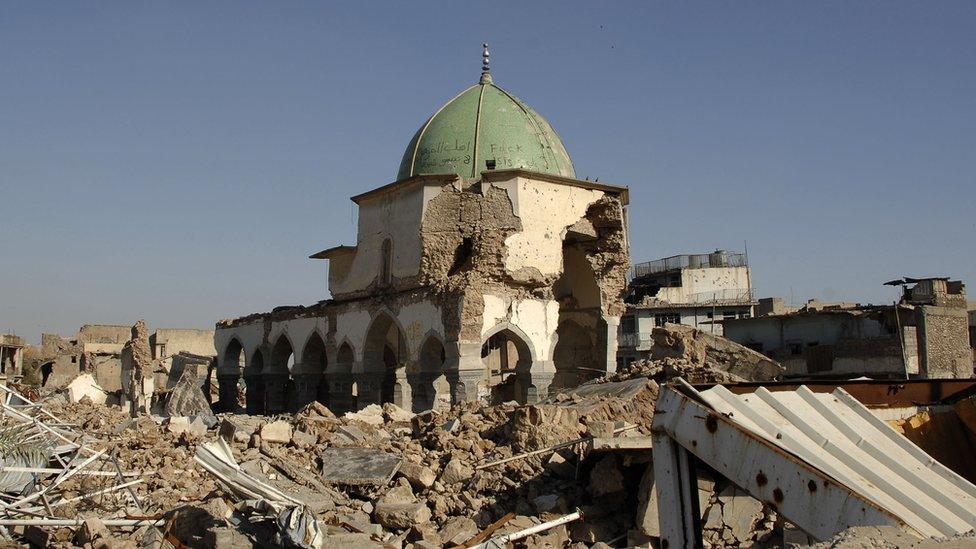Syria war: Government forces 'enter Manbij' amid Turkey threats
- Published
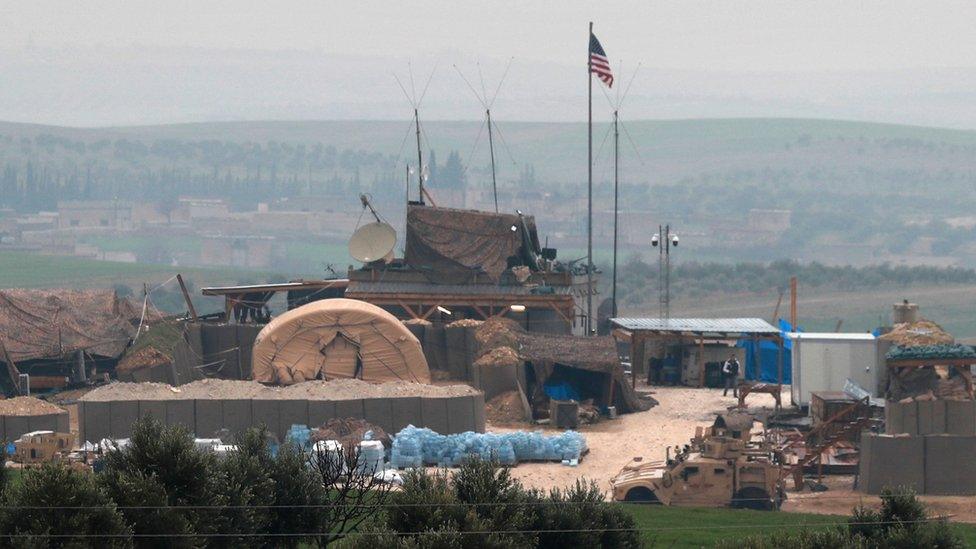
Forces from the US-led coalition against IS are also present in Manbij
The Syrian army has entered the key northern city of Manbij for the first time in six years, an army spokesman has said.
However the US-led coalition operating in the area said it had not seen military changes inside Manbij.
A US official and a UK-based monitoring group said Syrian troops had deployed in the area around the city.
US-backed Kurds withdrew and invited Syrian forces to replace them amid fears that Turkish troops would attack.
Turkey considers the US-backed Kurdish YPG forces to be part of a terrorist group.
The Kurds' request to the Syrian government followed the shock announcement that all US troops are to withdraw from Syria.
President Donald Trump announced the pullout of some 2,000 troops last week, asserting that the Islamic State group (IS) had been defeated.
But that claim has been disputed by important allies who say the move could lead to a resurgence of IS.
What have the key players said?
The Syrian army said it had raised a flag in Manbij. In a televised statement, a spokesman said the troops were there to "crush terrorism and defeat all invaders and occupiers".
However a US official told Reuters that US troops had not changed their positions in Manbij and dozens still remained. The official said they had seen Syrian forces on the outskirts of the city but not inside it.
The US-led coalition against the Islamic State group said reports of changes to military forces in the city were "incorrect".
Allow X content?
This article contains content provided by X. We ask for your permission before anything is loaded, as they may be using cookies and other technologies. You may want to read X’s cookie policy, external and privacy policy, external before accepting. To view this content choose ‘accept and continue’.
Nura al-Hamed, deputy head of the Manbij local authority, told AFP that the Syrian army deployment would "not enter the city of Manbij itself but will deploy on the demarcation line" with Turkish-backed Syrian rebels.
US and French coalition forces in the area remained at their positions and were continuing to conduct patrols, Ms Hamed told AFP.
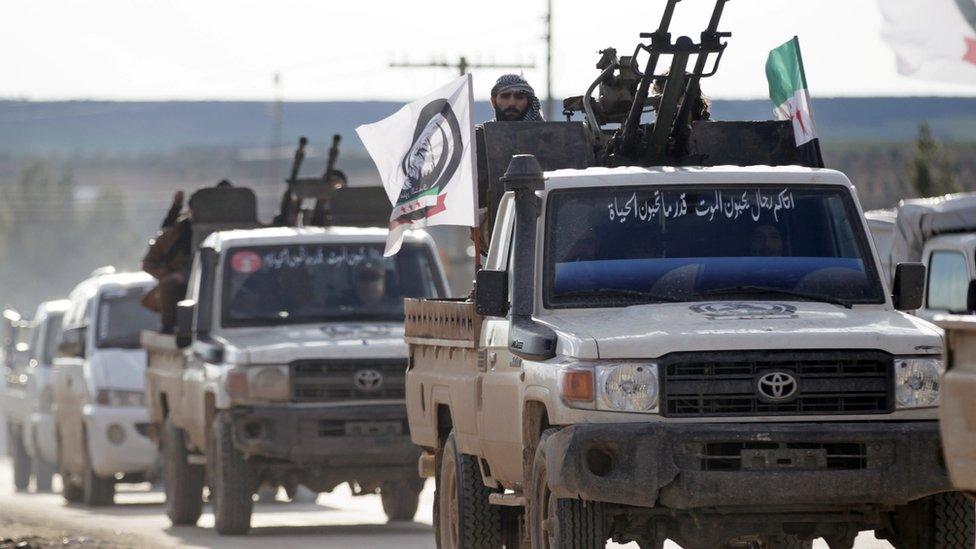
Turkish-backed Syrian rebels are in the vicinity of Manbij
Russia, which has been fighting on the side of Syrian President Bashar al-Assad since 2015, said the arrival of Syrian government troops would "help stabilise the situation".
"The enlargement of the zone under the control of government forces... is without doubt a positive trend," said Kremlin spokesman Dmitry Peskov.

Effort to deter Turkey
By Martin Patience, Middle East Correspondent, BBC News
The consequences of President Trump's surprise announcement to withdraw all US troops from Syria are now being seen on the ground.
Manbij is a strategically important town in northern Syria that until today was under the control of US-backed Kurdish forces.
The Kurds - who led the fight against IS - see Mr Trump's decision as a betrayal.
Is this the end for Islamic State?
Without the support of the Americans, Kurdish leaders are now being forced to choose what they regard as the least bad option.
They will be hoping that the presence of the Syrian government army - which is backed by Russia and Iran - will deter Turkey from launching an attack.

What's the context?
Turkey has been intensifying its military activity near positions held by Kurdish fighters since President Trump's withdrawal announcement on 19 December.
US soldiers have been working closely with Kurdish forces who form part of an alliance - the Syrian Democratic Forces (SDF) - in the battle against IS.
But this policy has infuriated Turkey, which is battling the militia in the nearby city of Afrin.
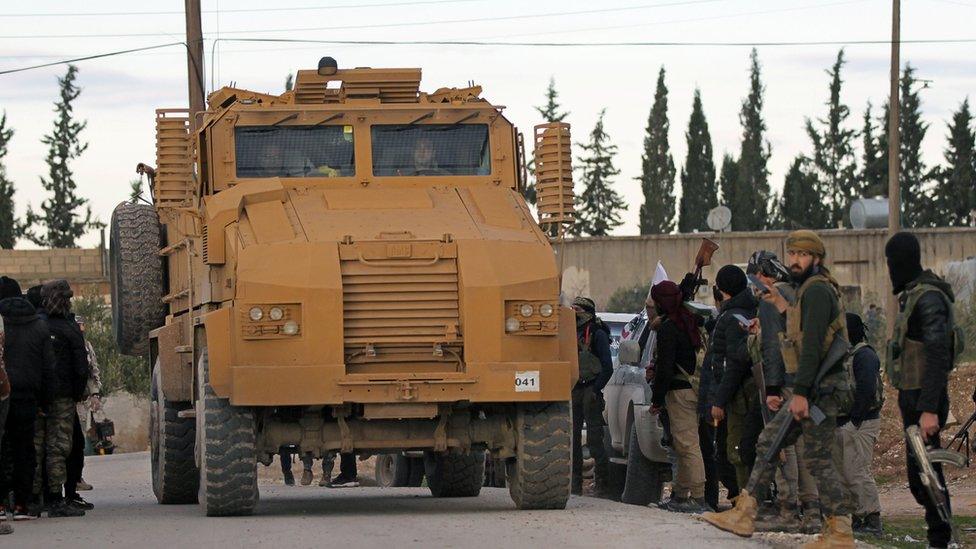
Turkish forces are also present near Manbij
It also says it is frustrated over what it sees as delays to a deal agreed with the US to clear Manbij of Kurdish fighters.
The deal over the city, which lies to the west of the Euphrates river, was agreed in February in a bid to stabilise the region.
The US also has soldiers in Manbij, which was taken from IS by forces led by the Kurdish YPG in 2016.


Tensions in the region have risen in recent weeks, and Turkish President Recep Tayyip Erdogan has threatened to launch a new offensive against the Kurds.
Turkey has launched two previous offensives against the Kurds in Syria since 2016.
Mr Erdogan wants to prevent the Kurds from consolidating their hold on Syrian territory and forming an autonomous region on Turkey's border.
Turkey considers the militia to be an extension of the banned Kurdistan Workers' Party (PKK), which has fought for Kurdish autonomy in south-eastern Turkey for three decades.
Why is Turkey attacking Syria? Mark Lowen explains
- Published12 December 2018
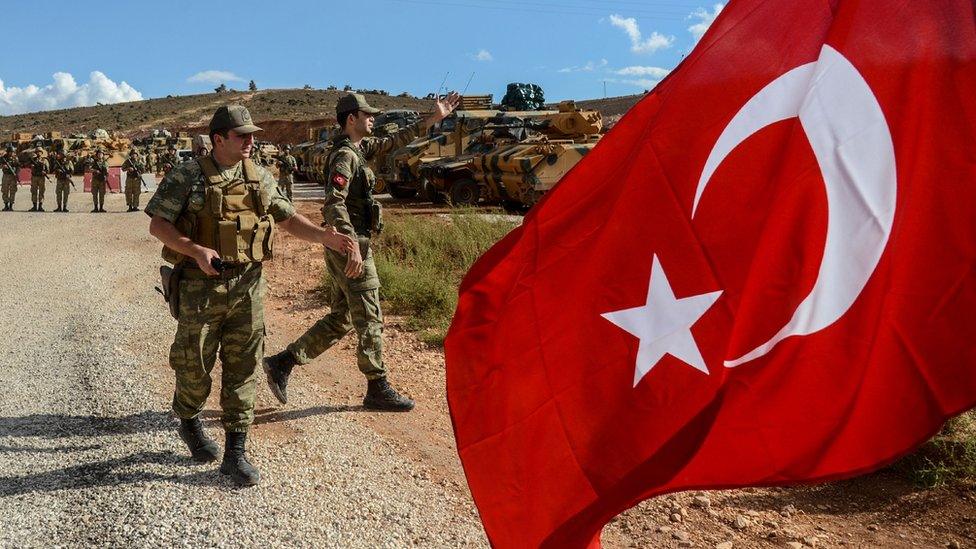
- Published20 January 2018
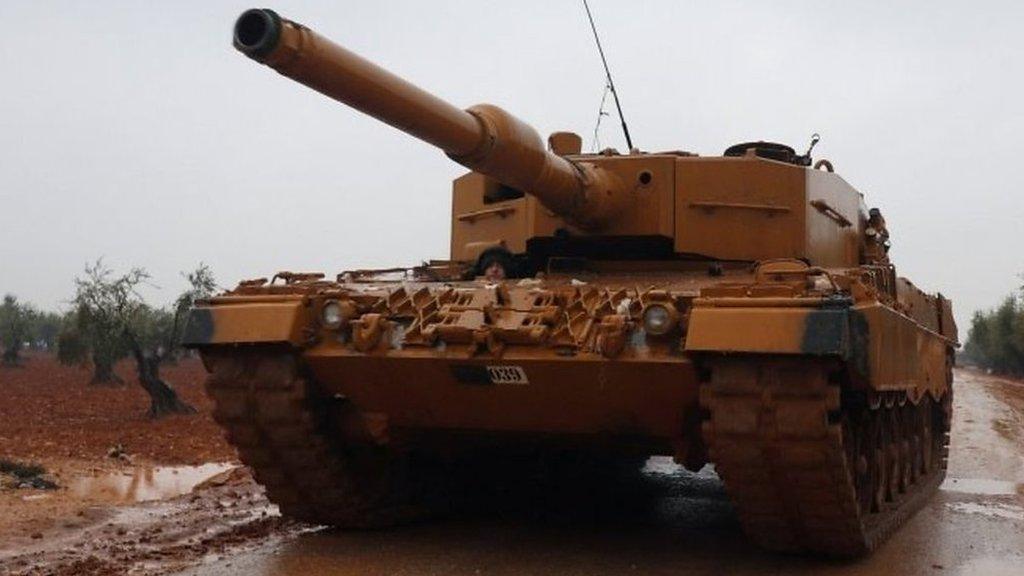
- Published2 February 2018
- Published19 December 2018
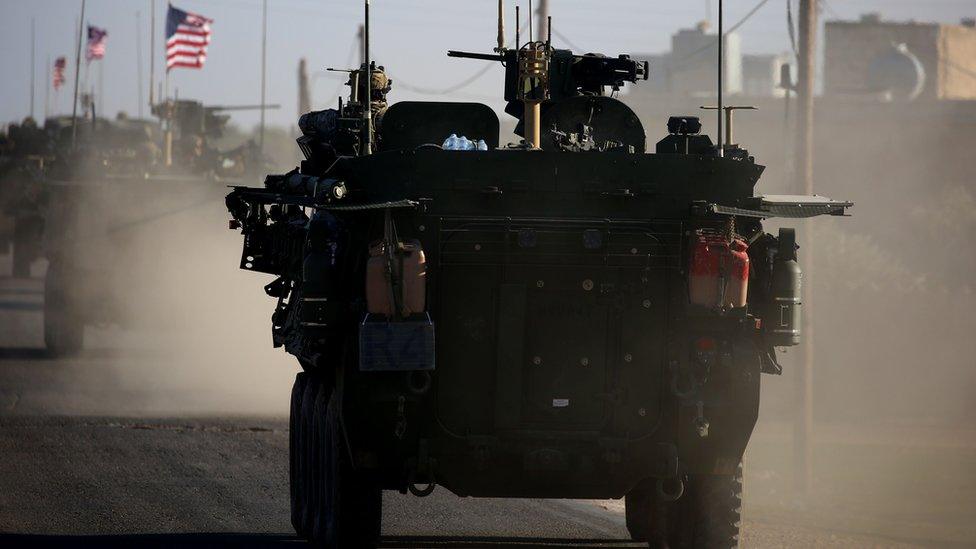
- Published2 May 2023

- Published15 October 2019
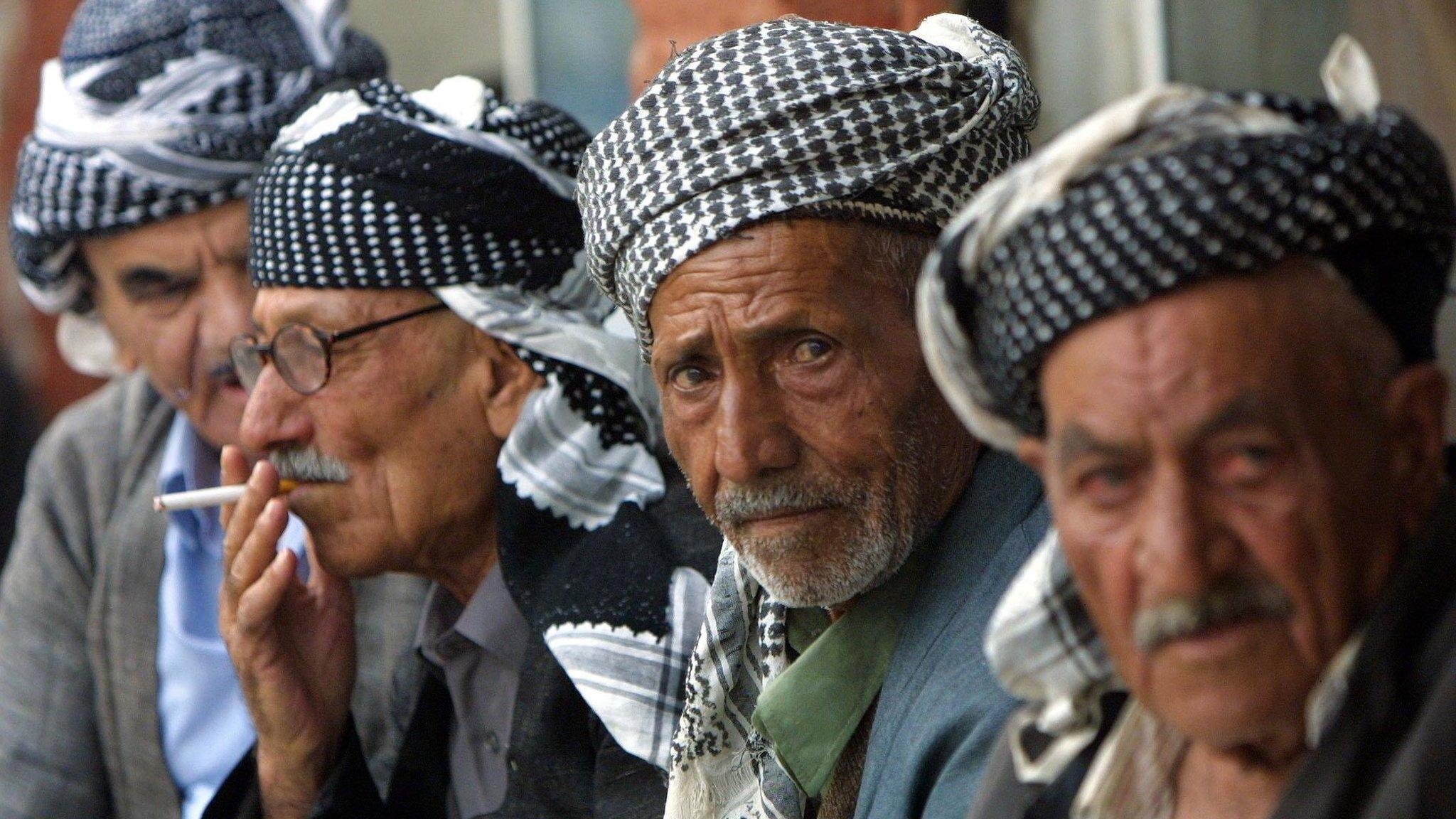
- Published23 March 2019
